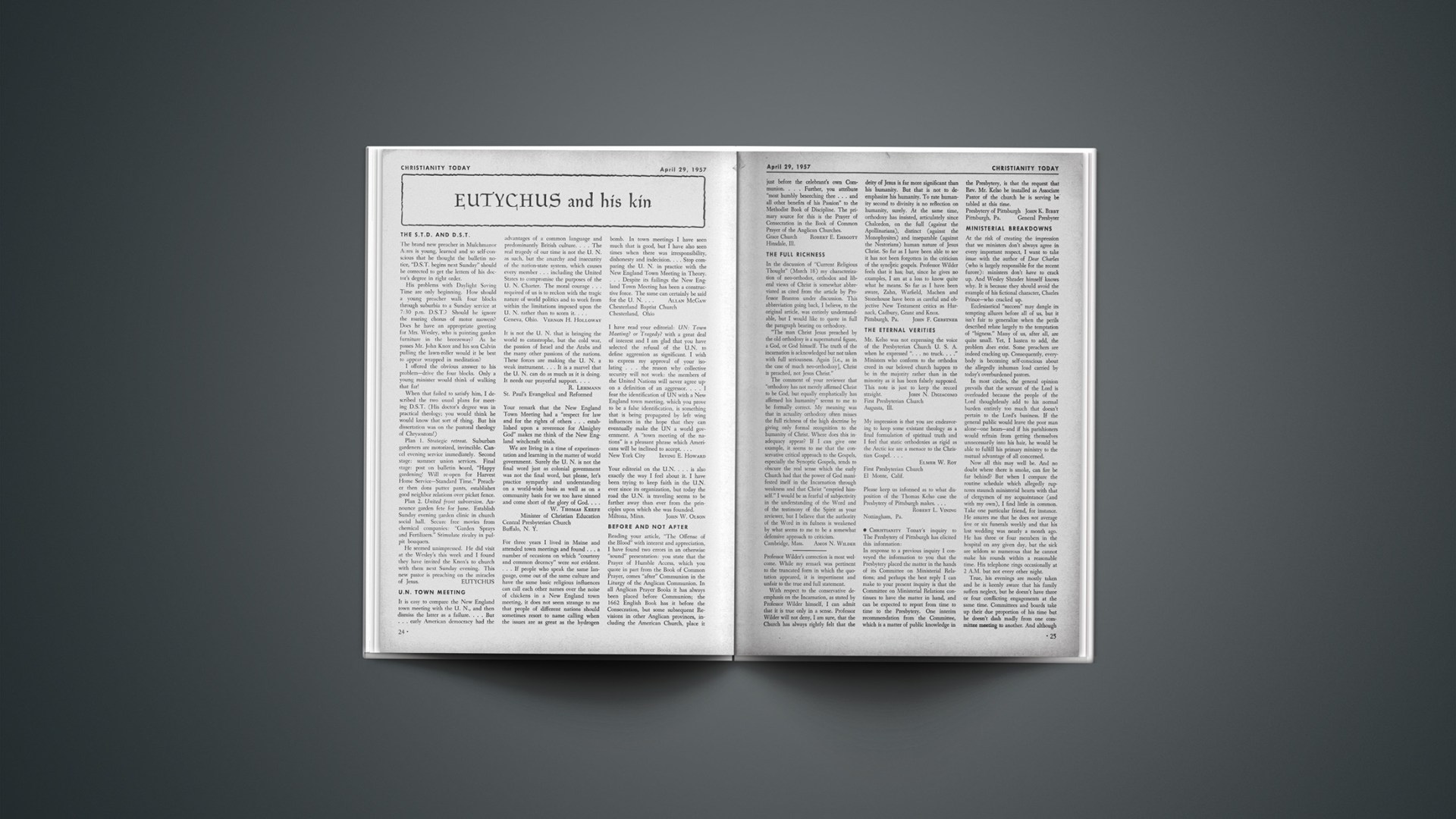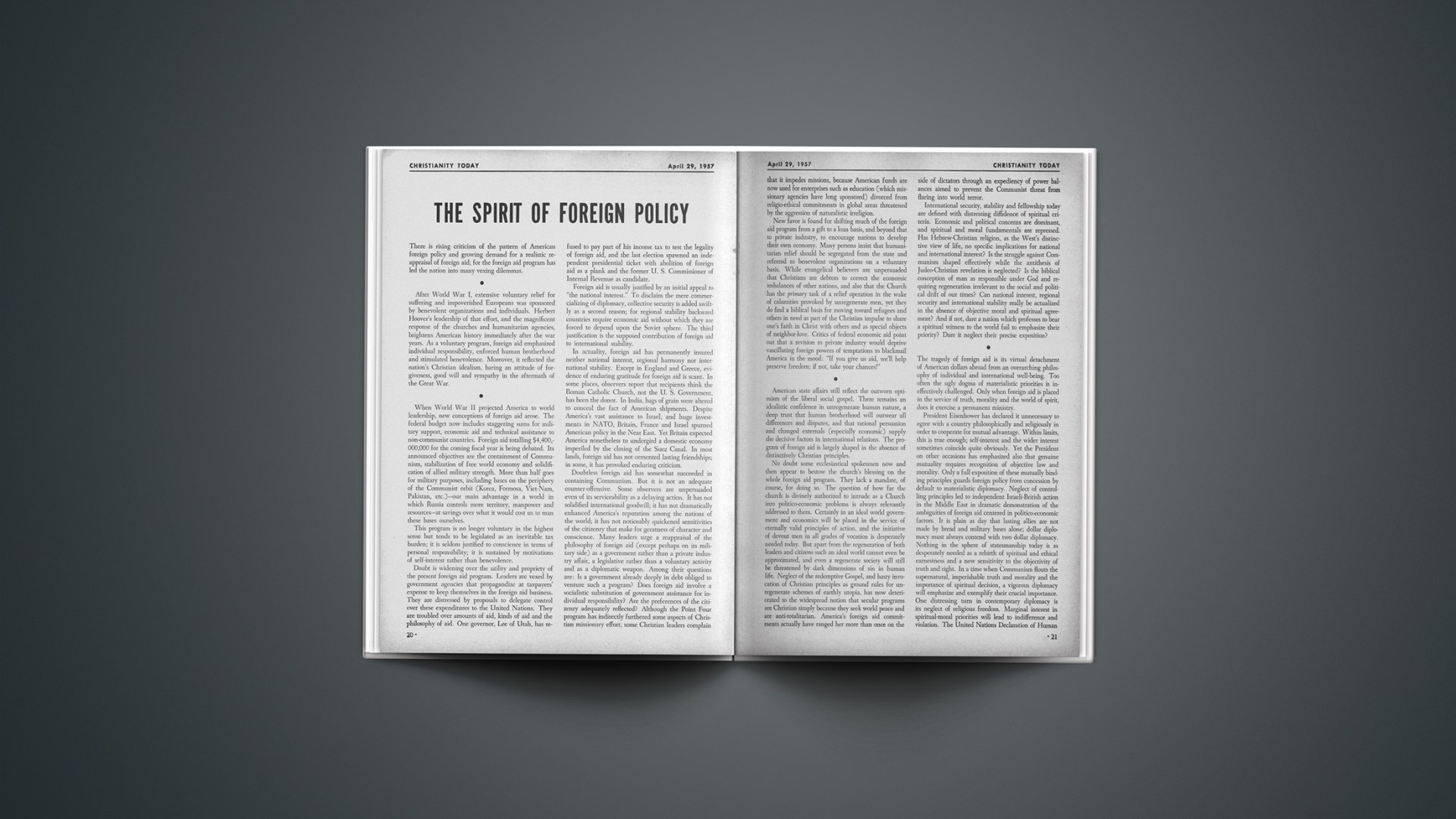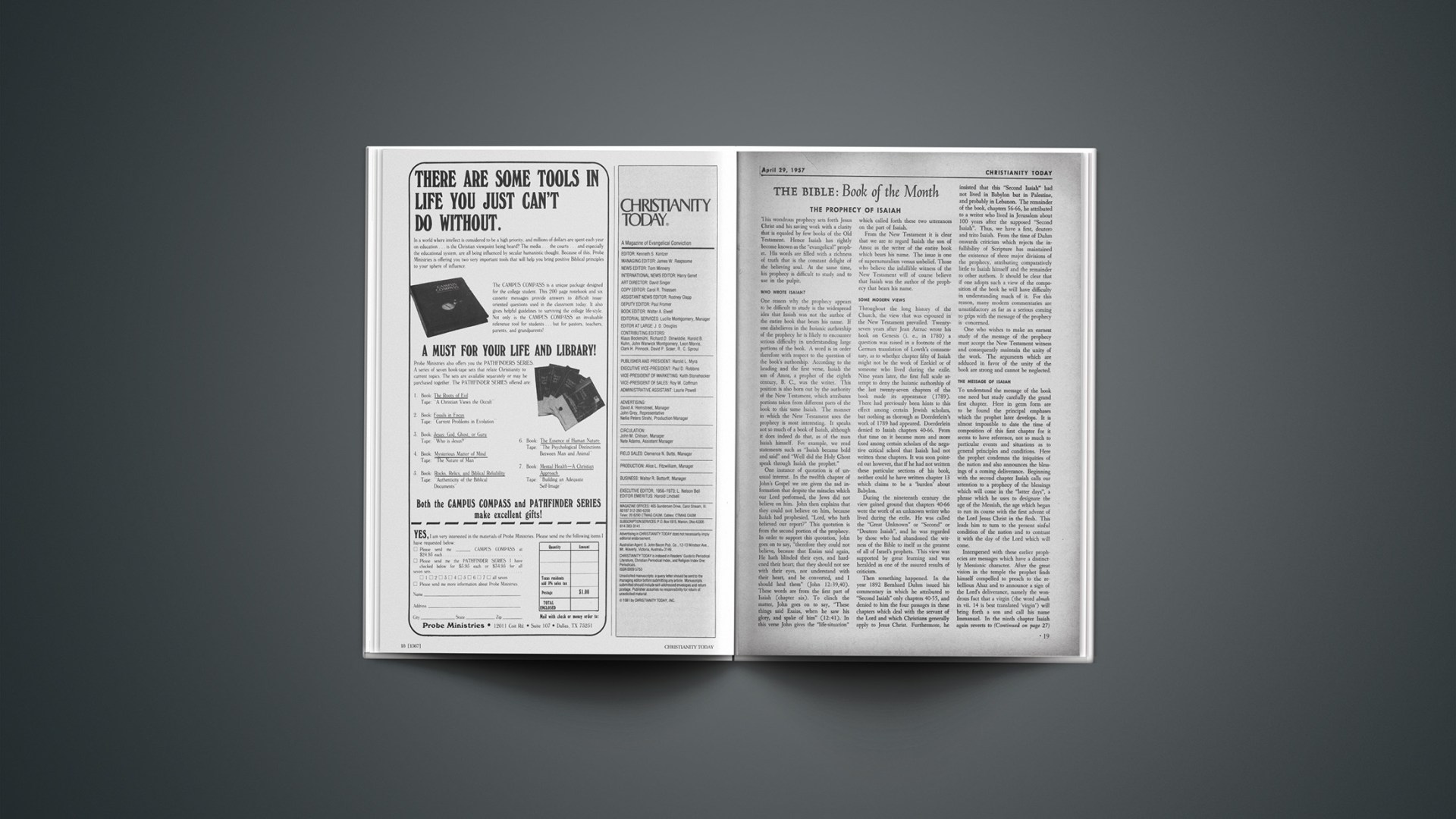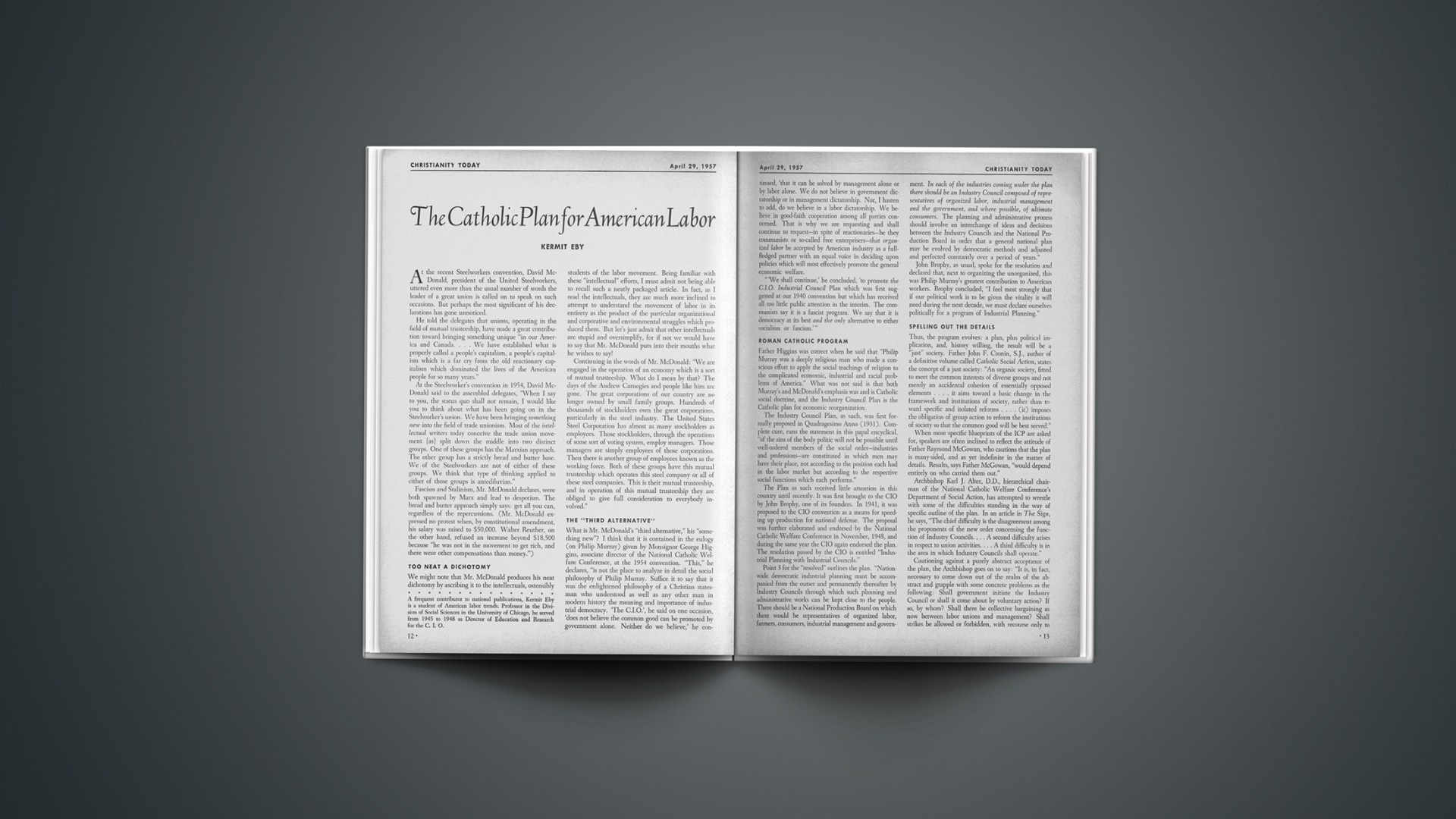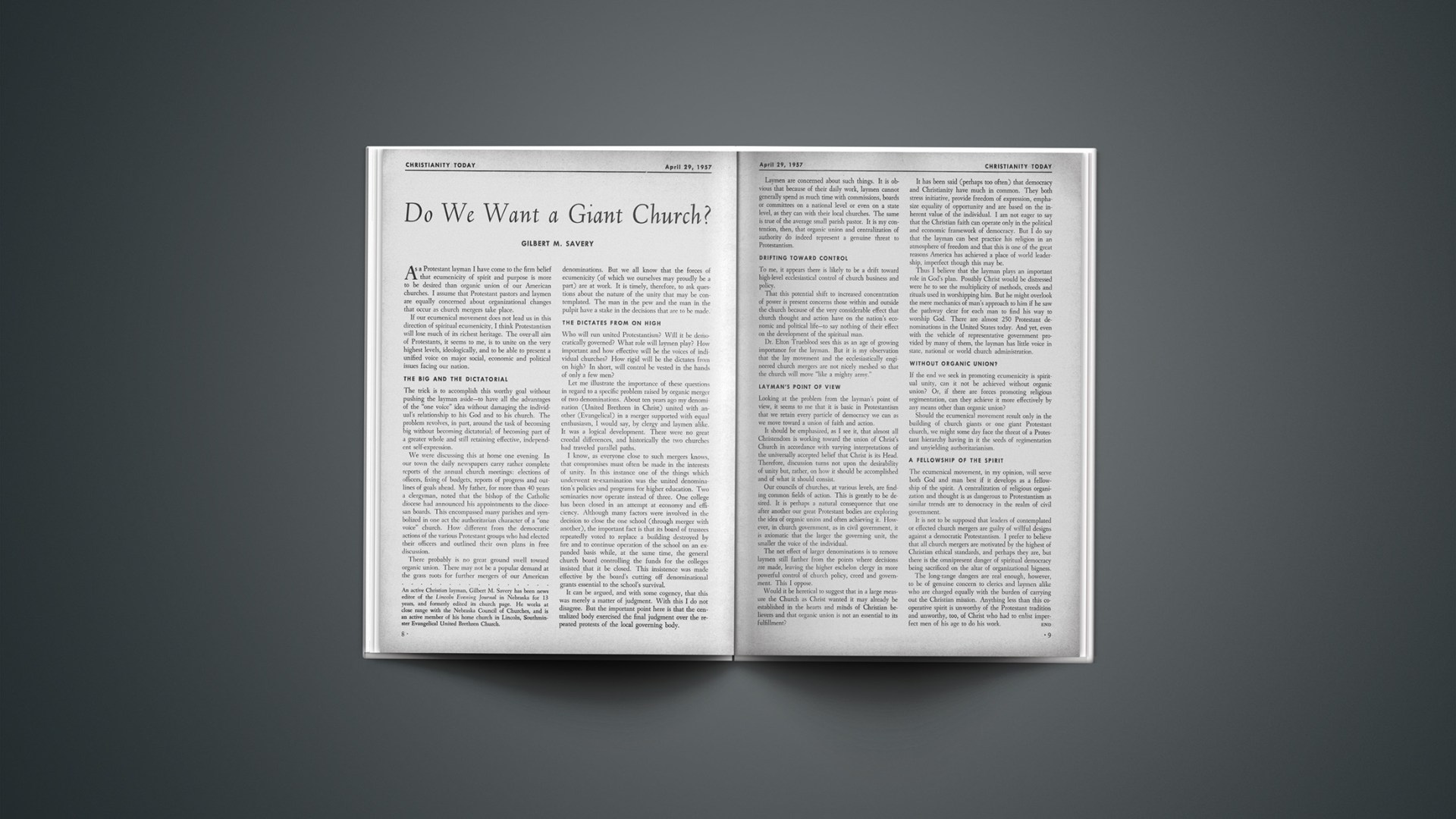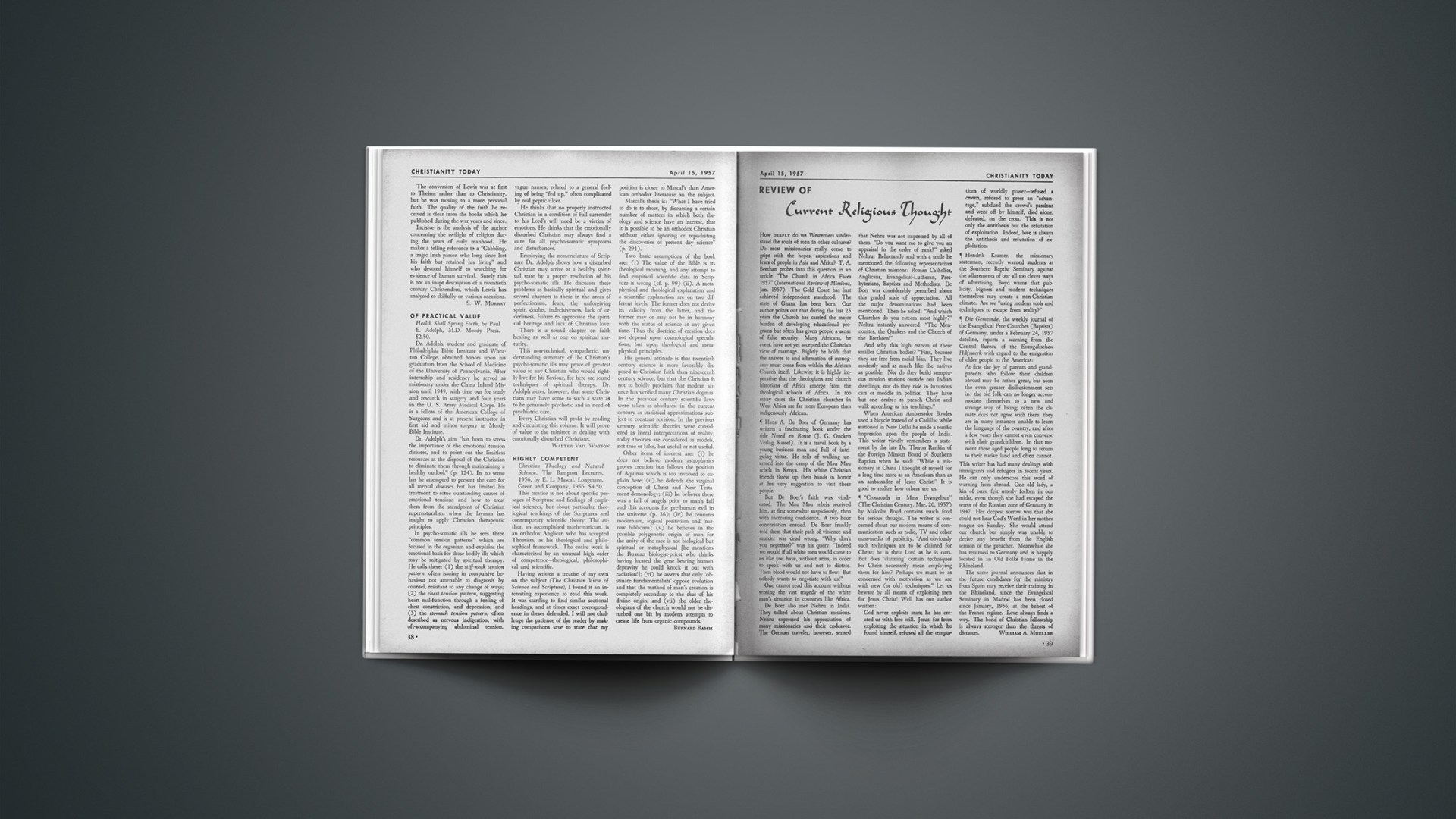THE S.T.D. AND D.S.T.
The brand new preacher in Mulchmanor Acres is young, learned and so self-conscious that he thought the bulletin notice, “D.S.T. begins next Sunday” should be corrected to get the letters of his doctor’s degree in right order.
His problems with Daylight Saving Time are only beginning. How should a young preacher walk four blocks through suburbia to a Sunday service at 7:30 p.m. D.S.T.? Should he ignore the roaring chorus of motor mowers? Does he have an appropriate greeting for Mrs. Wesley, who is painting garden furniture in the breezeway? As he passes Mr. John Knox and his son Calvin pulling the lawn-roller would it be best to appear wrapped in meditation?
I offered the obvious answer to his problem—drive the four blocks. Only a young minister would think of walking that far!
When that failed to satisfy him, I described the two usual plans for meeting D.S.T. (His doctor’s degree was in practical theology; you would think he would know that sort of thing. But his dissertation was on the pastoral theology of Chrysostom!)
Plan 1. Strategic retreat. Suburban gardeners are motorized, invincible. Cancel evening service immediately. Second stage: summer union services. Final stage: post on bulletin board, “Happy gardening! Will re-open for Harvest Home Service—Standard Time.” Preacher then dons putter pants, establishes good neighbor relations over picket fence.
Plan 2. United front subversion. Announce garden fete for June. Establish Sunday evening garden clinic in church social hall. Secure free movies from chemical companies: “Garden Sprays
and Fertilizers.” Stimulate rivalry in pulpit bouquets.
He seemed unimpressed. He did visit at the Wesley’s this week and I found they have invited the Knox’s to church with them next Sunday evening. This new pastor is preaching on the miracles of Jesus.
EUTYCHUS
U.N. TOWN MEETING
It is easy to compare the New England town meeting with the U. N., and then dismiss the latter as a failure.… But … early American democracy had the advantages of a common language and predominantly British culture.… The real tragedy of our time is not the U. N. as such, but the anarchy and insecurity of the nation-state system, which causes every member … including the United States to compromise the purposes of the U. N. Charter. The moral courage … required of us is to reckon with the tragic nature of world politics and to work from within the limitations imposed upon the U. N. rather than to scorn it.…
VERNON H. HOLLOWAY
Geneva, Ohio.
It is not the U. N. that is bringing the world to catastrophe, but the cold war, the passion of Israel and the Arabs and the many other passions of the nations. These forces are making the U. N. a weak instrument.… It is a marvel that the U. N. can do as much as it is doing. It needs our prayerful support.…
R. LEHMANN
St. Paul’s Evangelical and Reformed
Your remark that the New England Town Meeting had a “respect for law and for the rights of others … established upon a reverence for Almighty God” makes me think of the New England witchcraft trials.
We are living in a time of experimentation and learning in the matter of world government. Surely the U. N. is not the final word just as colonial government was not the final word, but please, let’s practice sympathy and understanding on a world-wide basis as well as on a community basis for we too have sinned and come short of the glory of God.…
W. THOMAS KEEFE
Minister of Christian Education
Central Presbyterian Church
Buffalo, N. Y.
For three years I lived in Maine and attended town meetings and found … a number of occasions on which “courtesy and common decency” were not evident.… If people who speak the same language, come out of the same culture and have the same basic religious influences can call each other names over the noise of chickens in a New England town meeting, it does not seem strange to me that people of different nations should sometimes resort to name calling when the issues are as great as the hydrogen bomb. In town meetings I have seen much that is good, but I have also seen times when there was irresponsibility, dishonesty and indecision.… Stop comparing the U. N. in practice with the New England Town Meeting in Theory.… Despite its failings the New England Town Meeting has been a constructive force. The same can certainly be said for the U. N.…
ALLAN MCGAW
Chesterland Baptist Church
Chesterland, Ohio
I have read your editorial: UN: Town Meeting? or Tragedy? with a great deal of interest and I am glad that you have selected the refusal of the U.N. to define aggression as significant. I wish to express my approval of your isolating … the reason why collective security will not work: the members of the United Nations will never agree upon a definition of an aggressor.… I fear the identification of UN with a New England town meeting, which you prove to be a false identification, is something that is being propagated by left wing influences in the hope that they can eventually make the UN a world government. A “town meeting of the nations” is a pleasant phrase which Americans will be inclined to accept.…
IRVING E. HOWARD
New York City
Your editorial on the U.N.… is also exactly the way I feel about it. I have been trying to keep faith in the U.N. ever since its organization, but today the road the U.N. is traveling seems to be farther away than ever from the principles upon which she was founded. Miltona, Minn.
JOHN W. OLSON
BEFORE AND NOT AFTER
Reading your article, “The Offense of the Blood” with interest and appreciation, I have found two errors in an otherwise “sound” presentation: you state that the Prayer of Humble Access, which you quote in part from the Book of Common Prayer, comes “after” Communion in the Liturgy of the Anglican Communion. In all Anglican Prayer Books it has always been placed before Communion; the 1662 English Book has it before the Consecration, but some subsequent Revisions in other Anglican provinces, including the American Church, place it just before the celebrant’s own Communion.… Further, you attribute “most humbly beseeching thee … and all other benefits of his Passion” to the Methodist Book of Discipline. The primary source for this is the Prayer of Consecration in the Book of Common Prayer of the Anglican Churches.
ROBERT E. EHRGOTT
Grace Church
Hinsdale, Ill.
THE FULL RICHNESS
In the discussion of “Current Religious Thought” (March 18) my characterization of neo-orthodox, orthodox and liberal views of Christ is somewhat abbreviated as cited from the article by Professor Branton under discussion. This abbreviation going back, I believe, to the original article, was entirely understandable, but I would like to quote in full the paragraph bearing on orthodoxy.
“The man Christ Jesus preached by the old orthodoxy is a supernatural figure, a God, or God himself. The truth of the incarnation is acknowledged but not taken with full seriousness. Again [i.e., as in the case of much neo-orthodoxy], Christ is preached, not Jesus Christ.”
The comment of your reviewer that “orthodoxy has not merely affirmed Christ to be God, but equally emphatically has affirmed his humanity” seems to me to be formally correct. My meaning was that in actuality orthodoxy often misses the full richness of the high doctrine by giving only formal recognition to the humanity of Christ. Where does this inadequacy appear? If I can give one example, it seems to me that the conservative critical approach to the Gospels, especially the Synoptic Gospels, tends to obscure the real sense which the early Church had that the power of God manifested itself in the Incarnation through weakness and that Christ “emptied himself.” I would be as fearful of subjectivity in the understanding of the Word and of the testimony of the Spirit as your reviewer, but I believe that the authority of the Word in its fulness is weakened by what seems to me to be a somewhat defensive approach to criticism.
AMOS N. WILDER
Cambridge, Mass.
Professor Wilder’s correction is most welcome. While my remark was pertinent to the truncated form in which the quotation appeared, it is impertinent and unfair to the true and full statement.
With respect to the conservative deemphasis on the Incarnation, as stated by Professor Wilder himself, I can admit that it is true only in a sense. Professor Wilder will not deny, I am sure, that the Church has always rightly felt that the deity of Jesus is far more significant than his humanity. But that is not to de-emphasize his humanity. To rate humanity second to divinity is no reflection on humanity, surely. At the same time, orthodoxy has insisted, articulately since Chalcedon, on the full (against the Apollinarians), distinct (against the Monophysites) and inseparable (against the Nestorians) human nature of Jesus Christ. So far as I have been able to see it has not been forgotten in the criticism of the synoptic gospels. Professor Wilder feels that it has; but, since he gives no examples, I am at a loss to know quite what he means. So far as I have been aware, Zahn, Warfield, Machen and Stonehouse have been as careful and objective New Testament critics as Harnack, Cadbury, Grant and Knox.
JOHN F. GERSTNER
Pittsburgh, Pa.
THE ETERNAL VERITIES
Mr. Kelso was not expressing the voice of the Presbyterian Church U. S. A. when he expressed “… no truck.…” Ministers who conform to the orthodox creed in our beloved church happen to be in the majority rather than in the minority as it has been falsely supposed. This note is just to keep the record straight.
JOHN N. DIGIACOMO
First Presbyterian Church
Augusta, Ill.
My impression is that you are endeavoring to keep some existant theology as a final formulation of spiritual truth and I feel that static orthodoxies as rigid as the Arctic ice are a menace to the Christian Gospel.…
ELMER W. ROY
First Presbyterian Church
El Monte, Calif.
Please keep us informed as to what disposition of the Thomas Kelso case the Presbytery of Pittsburgh makes.…
ROBERT L. VINING
Nottingham, Pa.
• CHRISTIANITY TODAY’S inquiry to The Presbytery of Pittsburgh has elicited this information:
In response to a previous inquiry I conveyed the information to you that the Presbytery placed the matter in the hands of its Committee on Ministerial Relations; and perhaps the best reply I can make to your present inquiry is that the Committee on Ministerial Relations continues to have the matter in hand, and can be expected to report from time to time to the Presbytery. One interim recommendation from the Committee, which is a matter of public knowledge in the Presbytery, is that the request that Rev. Mr. Kelso be installed as Associate Pastor of the church he is serving be tabled at this time.
JOHN K. BIBBY
General Presbyter
Presbytery of Pittsburgh
Pittsburgh, Pa.
MINISTERIAL BREAKDOWNS
At the risk of creating the impression that we ministers don’t always agree in every important respect, I want to take issue with the author of Dear Charles (who is largely responsible for the recent furore): ministers don’t have to crack up. And Wesley Shrader himself knows why. It is because they should avoid the example of his fictional character, Charles Prince—who cracked up.
Ecclesiastical “success” may dangle its tempting allures before all of us, but it isn’t fair to generalize when the perils described relate largely to the temptation of “bigness.” Many of us, after all, are quite small. Yet, I hasten to add, the problem does exist. Some preachers are indeed cracking up. Consequently, everybody is becoming self-conscious about the allegedly inhuman load carried by today’s overburdened pastors.
In most circles, the general opinion prevails that the servant of the Lord is overloaded because the people of the Lord thoughtlessly add to his normal burden entirely too much that doesn’t pertain to the Lord’s business. If the general public would leave the poor man alone—one hears—and if his parishioners would refrain from getting themselves unnecessarily into his hair, he would be able to fulfill his primary ministry to the mutual advantage of all concerned.
Now all this may well be. And no doubt where there is smoke, can fire be far behind? But when I compare the routine schedule which allegedly ruptures staunch ministerial hearts with that of clergymen of my acquaintance (and with my own), I find little in common. Take one particular friend, for instance. He assures me that he does not average five or six funerals weekly and that his last wedding was nearly a month ago. He has three or four members in the hospital on any given day, but the sick are seldom so numerous that he cannot make his rounds within a reasonable time. His telephone rings occasionally at 2 A.M. but not every other night.
True, his evenings are mostly taken and he is keenly aware that his family suffers neglect, but he doesn’t have three or four conflicting engagements at the same time. Committees and boards take up their due proportion of his time but he doesn’t dash madly from one committee meeting to another. And although he certainly could use much more time for study, he manages to keep a few hours weekly to himself and still make himself available to those who want to see him—besides making those extra house calls that must be made.
What is his secret? Superman? By no means. He simply is not the minister of a small city of several thousand souls, boss of an administrative staff of a dozen or two, manager of a full-time cafeteria, janitor of a $3,000,000 plant, supervisor of eight choirs, principal speaker for thirty-six congregational organizations and presently trying to repair one hundred forty-one broken marriages.
He just is the pastor of a one-man congregation of maximum effective size: 600. And because he is not trying to hold down a job big enough for five or six full grown men, he and his congregation get along fine: they don’t have the feeling that they are being rude when they come to him with matters they fear he may think foolish, and he doesn’t go around cracking up.
An astute observer of the ecclesiastical scene once remarked that “the idea of a church of over 1,000 members may well have been invented by the Devil.” The observation no doubt has merit.… The complaint that ministers are being overworked often comes from ivory towers too big for anybody’s good. If a laboring man breaks down, after trying to hold down an eight-hour job as a mechanic, another eight-hour job as a welder and then pick up some extra money fixing cars at home in his spare time, he certainly should not complain that he cracked up because his family bothered him with too many demands. The illustration, however wild, applies to the problem at hand.
Furthermore, I don’t believe that today’s minister can retreat behind the comfortable theory that being about the Lord’s business requires one only to pray and preach—and the size of the listening audience doesn’t matter. There are too many personal consequences attendant a preaching ministry which involve the expenditure of time and effort. The preacher cannot avoid these if he is to be a pastor, which he cannot avoid being if he is fulfilling his ministry out of a good conscience, in the words of the Apostle to young Timothy.
For the conscientious pastor of a large church, there is little actual relief in hiring additional specialists for specific tasks. He still is the pastor in the eyes of his average member and each of these expects him to be his pastor although he readily acknowledges that no single man could minister to all. And it is the pastor who breaks down, not the minister of music who can set up his eight choirs and go home occasionally.
Moreover, what about the popular solution which compartmentalizes large congregations into smaller “cells” under the oversight of assistant or associate ministers? Doesn’t this set up wheels within wheels much like our larger universities with their sub-colleges? No doubt it does. And each little congregation busily preoccupies itself with its assigned portion of the affairs of the Kingdom, within the larger prototype of the City of God: a colony within a colony, fellowshiping with all others whose last names begin with A through G.
But there is little to support this as a desirable extension of the New Testament concept of Communion for mutual edification in the Lord and for service. The lonely member who comes looking for life-giving fellowship in the Body of Christ seldom gets the feeling that he, after all, really counts, except in the card-file of the Treasurer.
Another friend of mine, the pastor of a huge church, not long ago complained that he did not even know all of the men on his Board of Deacons. That should not have been a complaint: it should have been a confession in sackcloth and ashes. My friend further indicates that his calls never even catch up with the current emergencies: he only attends to those which simply cannot be ignored. I don’t see how he sleeps at night.
One or two things are going to happen to my friend. Either he will continue to try to make his limited capacities spread as far as possible, in which case he may well break down; or he will pat his conscience to sleep, perhaps by taking up so many denominational and civic responsibilities that he can say to his troubled soul that, after all, he is too busy about good things to have time for the innumerable little details of parish lives and loves.
It was the Apostle, I believe, who indicated that we could always expect to have with us the poor; silly women; and those men whose disruptive influences will give ministers the jitters to the end of time.
Each of us, therefore, must examine himself and accept his field of responsibility accordingly.
But I must bring this time-consuming monograph to an end. My doctor tells me that if I cannot find a way to reduce my load, I can expect to crack up.
G. AIKEN TAYLOR
First Presbyterian Church
Alexandria, La.

